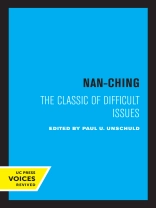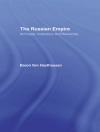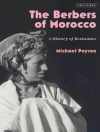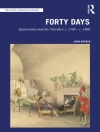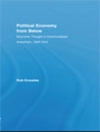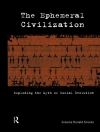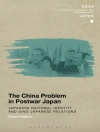Although the study of traditional Chinese medicine has attracted unprecedented attention in recent years, Western knowledge of it has been limited because, until now, not a single Chinese classical medical text has been available in a serious philological translation. The present book offers, for the first time in any Western language, a complete translation of an ancient Chinese medical classic, the
Nan-ching. The translation adheres to rigid sinological standards and applies philological and historiographic methods.
The original text of the
Nan-ching was compiled during the first century A.D. by an unknown author. From that time forward, this ancient text provoked an ongoing stream of commentaries. Following the Sung era, it was misidentified as merely an explanatory sequel to the classic of the Yellow Emperor, the
Huang-ti nei-ching. This volume, however, demonstrates that the
Nan-ching should once again be regarded as a significant and innovative text in itself.
It marked the apex and the conclusion of the initial development phase of a conceptual system of health care based on the doctrines of the Five Phases and yinyang. As
the classic of the medicine of systematic correspondence, the
Nan-ching covers all aspects of theoretical and practical health care within these doctrines in an unusually systematic fashion. Most important is its innovative discussion of pulse diagnosis and needle treatment.
Unschuld combines the translation of the text of the
Nan-ching with selected commentaries by twenty Chinese and Japanese authors from the past seventeen centuries. These commentaries provide insights into the processes of reception and transmission of ancient Chinese concepts from the Han era to the present time, and shed light on the issue of progress in Chinese medicine. Central to the book, and contributing to a completely new understanding of traditional Chinese medical thought, is the identification of a “patterned knowledge” that characterizes—in contrast to the monoparadigmatic tendencies in Western science and medicine—the literature and practice of traditional Chinese health care.
Unschuld’s translation of the
Nan-ching is an accomplishment of monumental proportions. Anthropologists, historians, and sociologists as well as general readers interested in traditional Chinese medicine—but who lack Chinese language abilities—will at last have access to ancient Chinese concepts of health care and therapy. Filling an enormous gap in the literature,
Nan-ching—The Classic of Difficult Issues is the kind of landmark work that will shape the study of Chinese medicine for years to come.
This title is part of UC Press’s Voices Revived program, which commemorates University of California Press’s mission to seek out and cultivate the brightest minds and give them voice, reach, and impact. Drawing on a backlist dating to 1893, Voices Revived makes high-quality, peer-reviewed scholarship accessible once again using print-on-demand technology. This title was originally published in 1986.
Over de auteur
Paul U. Unschuld is Professor and Director of the Horst-Goertz Endowment Institute for the Theory, History, and Ethics of Chinese Life Sciences at Charité-Medical University, Berlin. His previous books include Medicine in China: A History of Ideas and What Is Medicine? Western and Eastern Approaches to Health Care.
